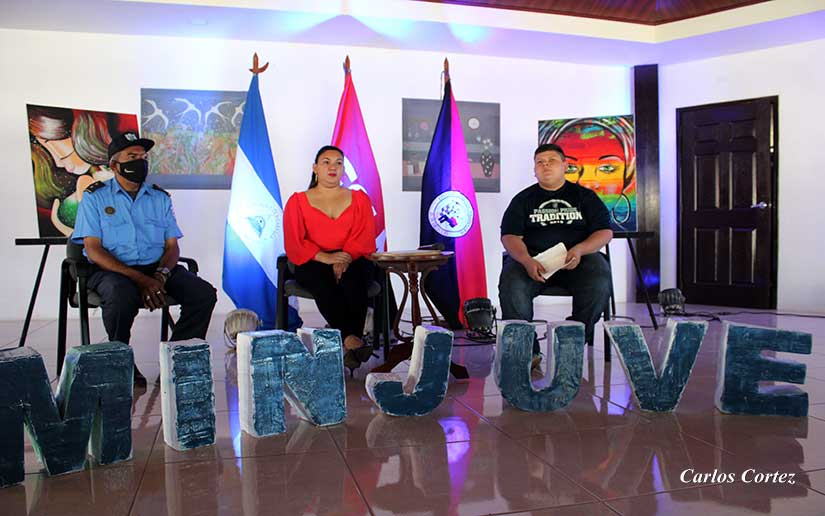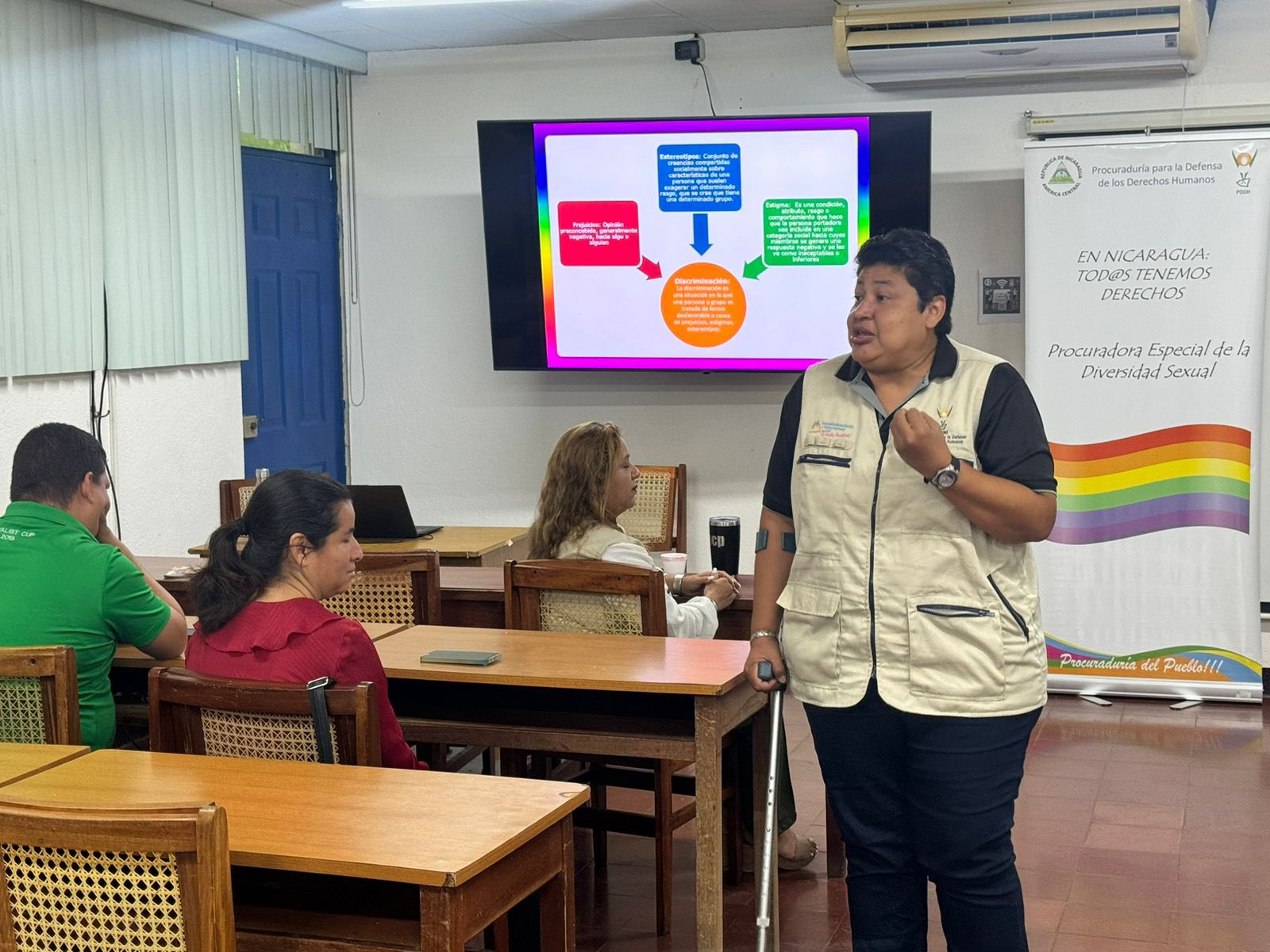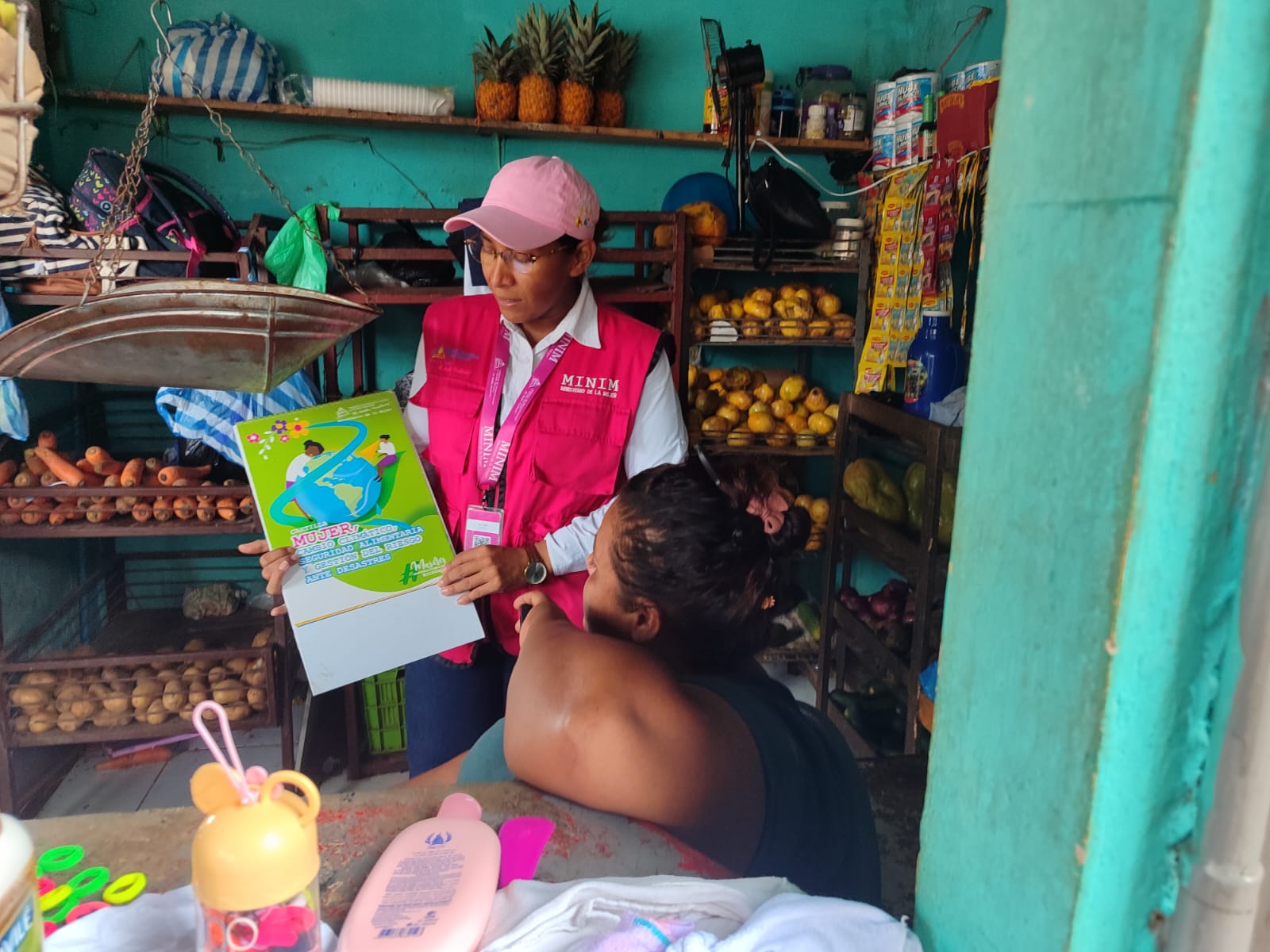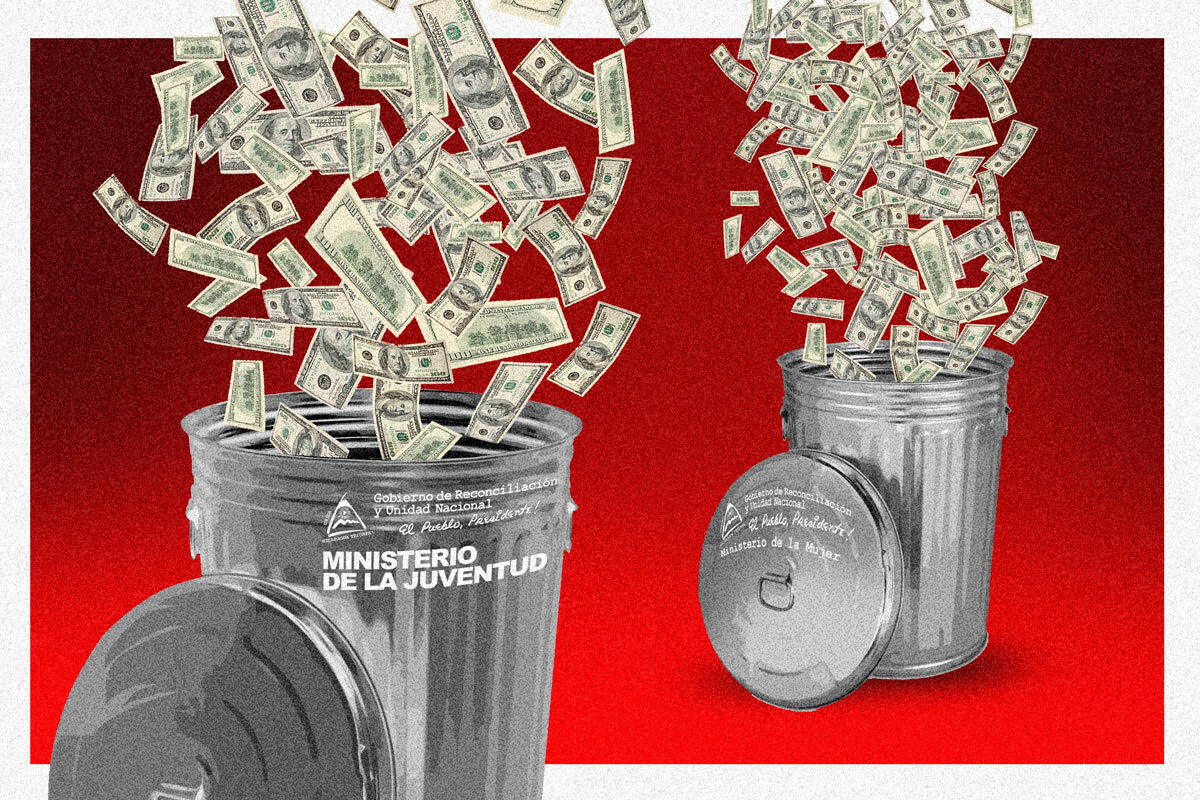The budgets assigned to ministries deemed to have questionable efficiency and no useful programs for the population have seen a notable increase over the past six years. This is because their real role is to serve as propaganda vehicles for the dictatorship.
These institutions, such as the Office for the Defense of Human Rights (PDDH), have been accused of deliberately failing to fulfill the functions they were designed for and of harming the people who seek their help.
This has not stopped the Ortega-Murillo dictatorship from continuing to fund these entities, even increasing the amounts year after year with money collected from Nicaraguan citizens’ taxes.
“In Nicaragua, you can’t talk about a ministry that defends anyone’s rights because basically all human rights are subordinated to the presidential couple,” says Salvador Marenco, part of the Human Rights Collective Nicaragua Nunca Mas.
Ministry of Youth, the largest budget

Of the three institutions analyzed by DIVERGENTES in a previous report, the Ministry of Youth (Minjuve) has the largest budget and has had the most significant increases over the past six years.
In 2018, Minjuve received 108,592,960 córdobas, which progressively increased to 145,378,000 córdobas in 2024, according to the Ministry of Finance and Public Credit (MHCP). This represents an increase of 36,785,040 córdobas over the past six years.
According to Minjuve, more than 55 million cordobas are for financing programs for the promotion of “youth participation,” and another 53 million for “training and education for young people.”
However, the Ortega-Murillo regime has never aimed to promote the participation of Nicaraguan youth, notes student activist Samantha Jirón, who was banished and denationalized last year.
“There has never been genuine youth participation in Nicaragua. Minjuve has never encouraged youth involvement in political or social issues and has excluded any young person who opposes its dictatorial narrative,” she says.
According to the institution, the program to promote youth participation involves “solidarity actions,” which are unspecified. However, Minjuve’s agenda is always focused on political activities of the Sandinista Front or the Sandinista Youth. Minjuve’s Vice-Minister Óscar Pérez is also a member of the National Council of the Sandinista Youth.
“The Sandinista Youth has a dark past and present. They have harassed government opponents and any youth group that wanted to organize politically. They have never allowed youth organization and have served as a surveillance tool for the regime,” says Jirón.
Programs exclude young political dissidents
One of Minjuve’s annual activities is the awarding of scholarships. However, these are not granted to young people who express opinions contrary to the regime. This has happened even long before 2018, says Jirón.
“In 2016, I had a scholarship at the National Technological Institute (Inatec) in Masaya, where I am from, and received transportation money every three months. I posted a critique of the Sandinista Youth on my Facebook, and the director of Inatec in Masaya saw it. They called me in and expelled me,” she says.
“They asked why I was criticizing the Sandinista Youth after all it had done. They put my academic file on the table and expelled me. From that day, I knew there was no freedom of expression in the country,” she continues.
Minjuve’s programs also include youth participation in recreational, sports, and cultural activities; and conducting studies and research on youth perceptions and interests. These programs have been the same since 2017.
“Young people have lost everything in terms of education and rights since 2018. Not only were we the target of crimes against humanity in Nicaragua, but we have also suffered the consequences of the dictatorship’s revenge, with the closure of universities, NGOs, and the expulsion of hundreds of students from public universities,” explains Jirón.
A Prosecutor’s Office that endorses confiscations

The Office for the Defense of Human Rights (PDDH) is one of the least functional institutions in the State, reports human rights defender Salvador Marenco. However, it is also one of the institutions that have benefited from budget increases in the last three years.
In 2018, the PDDH had a budget of 59,412,466 córdobas, which decreased over the next three years. In 2022, the amount significantly increased and then it received 70,530,000 córdobas in 2024, its highest sum to date.
Despite the budget increase, the PDDH deliberately fails to fulfill its role of helping the people. This was evident with its refusal to accept denunciations from people who suffered human rights violations since the sociopolitical crisis began in 2018.
“Since 2014, the PDDH has not issued a single report on human rights violations in the country. This means that for years this prosecutor’s office has been obsolete, a fake prosecutor’s office,” says Marenco.
“The PDDH has obstructed justice and investigations related to human rights violations, and has engaged in the concealment of facts. Currently, the PDDH has no real functionality,” he continues.
The PDDH’s complicity with the regime’s arbitrary actions was recently evident with the confiscation of the property of former guerrillera Mónica Baltodano and political scientist Julio López.
The couple stated that on May 21, their house near the Apoyo Lagoon was seized by “security agents in civilian clothes,” who “had the audacity to set up the Office for the Defense of Human Rights there.”
“The Office endorses confiscations by moving into properties that were illegally seized. We have seen how the office’s nature has been distorted from what it was created for,” says Marenco.
Regime continues to concentrate power
The significant budget increase happened after the National Assembly ordered the attachment of the PDDH to the Attorney General’s Office (PGR) in November 2023. Thus, the PDDH stopped being an autonomous entity and now responds to the PGR, an entity accused of being under Presidential control.
According to Marenco, this was a regime strategy to continue concentrating power and weakening other institutions, such as the Judicial Branch, whose officials have faced persecution since last year. “This is a complete restructuring of the State to ensure control over repression and quick response to the dictatorship’s orders,” he says.
Now, there are five special prosecutors in the country: special prosecutor for women, special prosecutor for sexual diversity, special prosecutor for citizen participation, special prosecutor for people with disabilities, and special prosecutor for prisons. However, none of them work to defend and guarantee the constitutional rights of these populations.
An example is the absolute silence regarding the 138 political prisoners currently held by the regime, and the conditions of isolation and lack of communication some of them face, according to the latest count by the Mechanism for the Recognition of Political Prisoners.
However, the human rights violations faced by prisoners extend beyond political prisoners, clarifies Marenco.
“In Nicaragua, there are severe cases of torture in prisons. Beyond political prisoners, there are severe cases of overcrowding, isolation, and unsanitary conditions. There is also widespread mistreatment of inmates by the National Police, which has guaranteed impunity,” he explains.
“There is still discrimination against women, the LGBTIQ+ population, people with disabilities, and children in Nicaragua. What we see on their website is that they only organize some courses to raise awareness about their rights, but this is useless because the population has no mechanisms to demand that those rights are respected,” he adds.
A Ministry of Women that doesn’t empower women

The Ministry of Women (Minim) is one of the institutions with the smallest budget in the country. In 2018, its budget was 29,832,000 córdobas, which then increased to 41,037,946 córdobas in 2024. This means an increase of 11,205,946 córdobas over the past six years.
Half of this budget is used for central activities, like financial management expenses. The rest of the money is used for programs on gender equity training, institutionalizing gender practices, and promoting women’s rights and leadership.
The problem with Minim is that it does not address any of the needs or demands of women, explains feminist sociologist María Teresa Blandón.
For example, assistance in situations of violence, which is one of the greatest needs of Nicaraguan women, is handled by the Women’s and Children’s Offices; issues related to child support are managed by the Ministry of Family, Adolescence and Children or the Courts; integration into economic programs for women, such as the Usura Cero program, is coordinated with the Ministry of Family Economy, Community, Cooperative, and Associative Development.
Minim has no inter-institutional coordination with these entities; in any case, it only provides information to women to refer them to these ministries if they seek help for any of the mentioned needs. Its programs are limited to workshops, talks, and house-to-house visits on topics related to their rights “for their empowerment,” claims Minim.
“Empowerment, as proposed by feminists from the Global North and South, is not individual. It is not short-term specific actions. It is not the transfer of knowledge. Empowerment is the result of long-term processes, combining personal autonomy, opportunities for women, especially the most discriminated against, and autonomous civic participation,” explains Blandón.
“Empowerment and awareness of rights happen when women reclaim their voice to define their demands,” says Blandón, adding that in a dictatorship that violates women’s rights, this is not possible.





